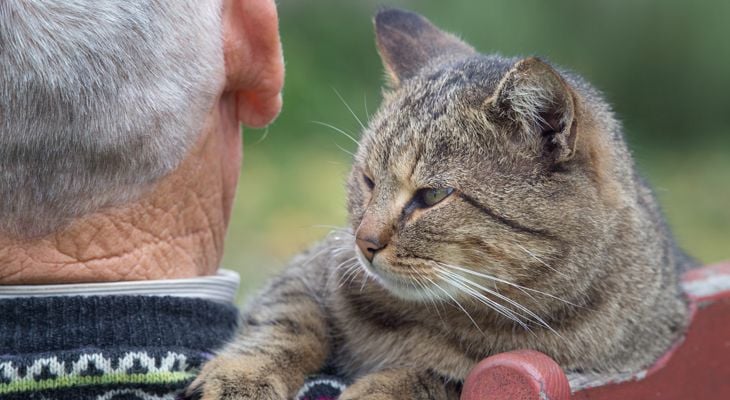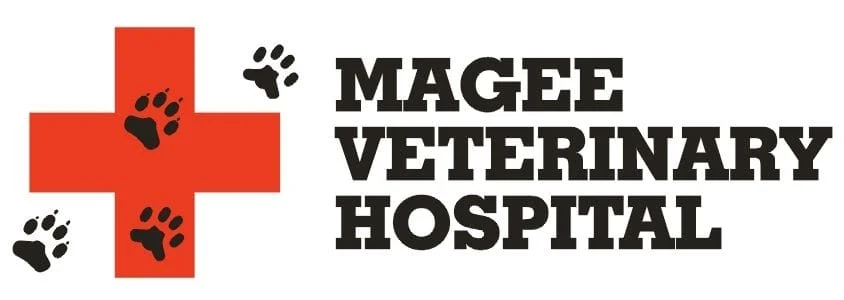
Owners often feel sad when they are forced to admit that their beloved cat is no longer jumping as high or running as fast as he or she used to. But cats, like humans, are living longer than ever, and their golden years can be of high quality despite slowing down. Advances in veterinary care, better nutrition and home care all contribute to more cats hitting the two-decade mark, the equivalent of about 100 years old for a human.
As cats enter their senior and geriatric years, they face a new set of age-related issues. Here are a few you may need to address.
Is Your Cat Slowing Down?
By the age of 12, cats are generally akin to 65 year-old humans. Like humans who hit retirement age, cats might want to take it a bit easier. Slowing down is normal. However, it’s important for your senior cat to have regular checkups. Your cat’s diminished activity may be due a treatable condition, such as debilitating joint pain. Symptoms could include difficulty jumping in and out of his or her litter box, constipation, reclusiveness and inability to groom himself or herself.
Cognitive Dysfunction
Just as elderly people may suffer from dementia, cats are susceptible to similar symptoms. Once they hit the double digits, cats may experience spatial disorientation, altered sleep cycles, midnight yowling, wandering, blankly staring at walls, reduced interest in food and water and subpar toileting habits. Some of these disturbing new patterns may stem from neurological problems in the brain while kidney, hyperthyroid or periodontal problems may lead to others.
The Special Needs of the Senior Cat
Just like humans, cats face challenges as the body ages. Some of these problems can be corrected or controlled; some they just have to live with. Your feline veterinarian can help you determine how your cat’s life can be more comfortable and distinguish signs of natural aging from disease.
Here are a few changes your cat might encounter as he/she ages:
- Immune function decline
- Dehydration, which diminishes circulation
- Thinner skin, which is more prone to infections
- A decline in grooming leads to skin inflammation and fur mats
- Brittle, overgrown claws
- Disorientation and excessive yowling
- Hyperthyroidism
- Diminished hearing
- A hazy look to the eyes
- Dental problems and tooth pain
- Impaired kidney function
- Arthritis and joint pain
Loving Care for Older Cats
When cats urinate outside the box or yowl for mysterious reasons at night, it’s easy for owners to become impatient. However, your senior cat needs your love, gentleness and understanding, just like any senior family member.
Try to make life easier for your cat. If jumping has become difficult, provide a step stool or ramp to your cat’s favorite perch. Set up a warm, soft place to rest where your cat can have some privacy. Add more litter boxes and water bowls to make access more convenient. Be sure the boxes have low sides so climbing in is easier. You could even use a cookie sheet covered with newspaper and litter.
Help your cat groom. Gently brush your cat to remove loose fur and stimulate circulation.
While cats are known for seeing in the dark, older cats might appreciate a nightlight. If your cat is blind or hard of hearing, avoid startling them. For blind cats, call their name before handling. For deaf cats, approach from the front where they can see you.
Ask your veterinarian about the most nutritious diet for your senior cat’s needs. Cats with impaired kidney function need more water, and your vet might suggest wet food rather than dry food.
Is It Time to Say Goodbye?
No pet owner wants to contemplate the issue of euthanasia. However, there may come a point at which you worry that your pet’s quality of life is so low that you are prolonging his or her misery by not taking action.
Usually the decision to end a cat’s life is made jointly by the owner and the veterinarian. Some signs that your cat’s quality of life is very low include:
- Stopping eating
- Not responding to you
- Soiling her sleeping area
- Excessive meowing
Your veterinarian can help you assess whether your cat’s discomfort is tolerable, whether you’re able to give your cat adequate homecare, if pain relief can improve quality of life, the financial feasibility of treatment and other factors.
A cat’s senior years can be trying, as owners worry about decline and discomfort. Nonetheless, they can also be very rewarding. A tough tomcat may become gentler and more affectionate. Your cat will rely on you to a great extent and will appreciate your care and friendship to the end.
For more help on how to care for your aging cat, call our office today. We can evaluate your cat’s health conditions and keep him or her happy and healthy for as long as possible.
